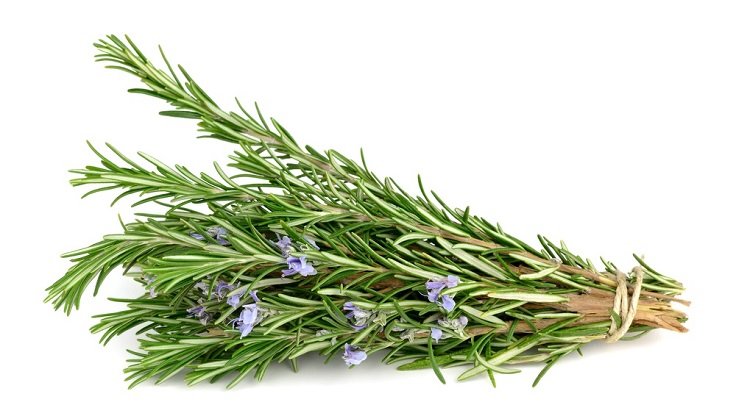Ways to use rosemary beyond the kitchen

When you think of rosemary, you can imagine those dry, pointy chunks you find in the spice aisle at your grocery store. Although not everyone likes things dry, fresh rosemary is nevertheless a very aromatic and flavorful addition to many dishes and has been a popular herb in cooking for many years with many other uses.

Table of Contents
Five ways to use rosemary as food
You may be familiar with rosemary in your potatoes, but what you may not know is that this delicious herb has a number of uses, not just in the kitchen, but also in your medicine cabinet, your skincare routine, and at home.
Rosemary in vinegars and oils
Making an infusion of vinegar or oil with rosemary is a delicious and simple way to preserve the flavor of rosemary without spoiling the herb. Both can be used in any recipe that calls for oil or vinegar, and the oil can be used as a delicious topping for warm, crusty bread.
Rosemary in sauces and soups
Whole sprigs of rosemary can easily be added to any soup, stew, sauce, or marinade to add a hint of flavor. Rosemary pairs well with many other ingredients like citrus, butter, oil, balsamic, garlic, and pepper, and is especially good in more hearty soups with tubers like potatoes, parsnips, sweet potatoes, and carrots.
Herb butter
Flavored butter can add a whole new dimension to your kitchen and is a delicious alternative to regular butter on a piece of warm bread.
Rosemary in drinks
Rosemary can add a flavorful touch to some of your favorite drinks, both alcoholic and non-alcoholic. Whether you’re trying to spice up your water glass or want to impress your guests with a unique cocktail, rosemary makes a great addition to many drinks.
Rosemary desserts
Rosemary pairs very well with fruits and sweeter flavors, such as lemon and apple, and can even be paired with dark chocolate for a surprising and elegant dessert.
Five ways to use rosemary medicinally
Rosemary is an exceptional herb for treating health issues. As a natural remedy it is very useful and should not be missing in your natural remedies kit. Consider the following benefits of rosemary for different conditions.
Relieves anxiety and stress
There have been some studies that have shown that inhaling rosemary oil decreases the pulse rate during stressful situations (such as test writing). Since the pulse rate reflects short-term stress, rosemary oil can help reduce stress naturally.
In another study, participants who inhaled rosemary oil for five minutes had 23 percent lower levels of the stress hormone cortisol in their saliva than those who did not.
Improves brain function
Although more research is needed to confirm this, some research has been done to show that inhaling rosemary oil helps prevent the breakdown of acetylcholine, which is a brain chemical important for thinking, concentration, and memory.
Additionally, there is some research to suggest that breathing rosemary oil may help improve brain function in patients with dementia or Alzheimer’s disease.
High in antioxidant, antimicrobial and anti-inflammatory compounds
Rosemary tea contains rosmarinic acid and carnosic acid, which are polyphenolic compounds that demonstrate antioxidant and anti-inflammatory activity.
These compounds also have antimicrobial properties to help fight infection and have even shown potential to slow the growth of cancerous tumors.
Pain relief
An animal study has been conducted that suggests that rosemary oil may be a slightly more effective pain reliever than acetaminophen. Another study conducted in human shoulder pain stroke survivors also showed benefits. Participants experienced a 30 percent reduction in pain after combining rosemary aromatherapy with acupuncture. This was compared to 15 percent for those who only received acupuncture treatment alone.
Reduce inflammation of the joints
More research is needed on the impact of rosemary on joint inflammation, but there is preliminary evidence to suggest that rosemary oil may help reduce tissue inflammation associated with pain and swelling by stopping the migration of white blood cells into the joints. injured tissues to release inflammatory chemicals. This could be potentially beneficial for people with rheumatoid arthritis.
Three ways rosemary can be used on the body
There are several ways in which rosemary can be used in the body to take advantage of its benefits. These are just some that you can put into practice now.
It stimulates hair growth
Rosemary oil can treat androgenetic alopecia (male-pattern baldness) by preventing a by-product of testosterone from attacking hair follicles, and rubbing rosemary oil to the scalp twice daily has been shown to stimulate growth. hair related.
Increase circulation
If you suffer from Raynaud’s disease (which affects circulation), or you just find that your hands and feet are always cold, massaging a rosemary oil mixture into your hands can help warm them. Rosemary oil may help expand blood vessels, warming the blood so that it more easily reaches the fingers and toes, but more research is needed.
Fight acne
Rosemary’s antibacterial and antimicrobial properties make it particularly beneficial in treating many skin problems. Rosemary extract from the whole plant has been shown to reduce inflammation associated with acne and fight the bacteria that cause acne breakouts.
Two ways rosemary can be used in the home
But everything does not stay there. Rosemary is great to be used in the home because its properties warrant it. Do you want to know how you can use the magic of this herb at home? Check out the following examples:
Pots over low heat
If you want your home to smell amazing, a simple slow cooker is an easy, chemical-free way to do it. All you have to do is fill a pot with water, add your favorite aromatics, and let it simmer on the stove, adding more water as it gradually evaporates.
Rosemary, sliced oranges, blueberries, and cinnamon will give your home a holiday-inspired scent, while a simple pot of lemon and rosemary will make your home smell bright and fresh.
Pest control
Rosemary acts as a repellent for many pests and insects. You can place sprigs of rosemary next to your doors and windows to prevent them from entering your home, or use a spray of ten drops of rosemary oil mixed with a cup of water.
Rosemary can also be a mouse deterrent, and some suggest placing a few twigs in the back of cabinets, where mice normally like to hide.
While many of the benefits of rosemary require further study, it is generally considered safe to use and has very few side effects. Remember when using rosemary extract or oil that it is highly concentrated, so you only need a few drops. Rosemary essential oil should not be used internally and should generally be diluted in a solution or carrier oil when applied to the skin.
As always, check with your doctor before adding anything new to your health regimen, and if you notice any negative side effects, stop using it immediately.


